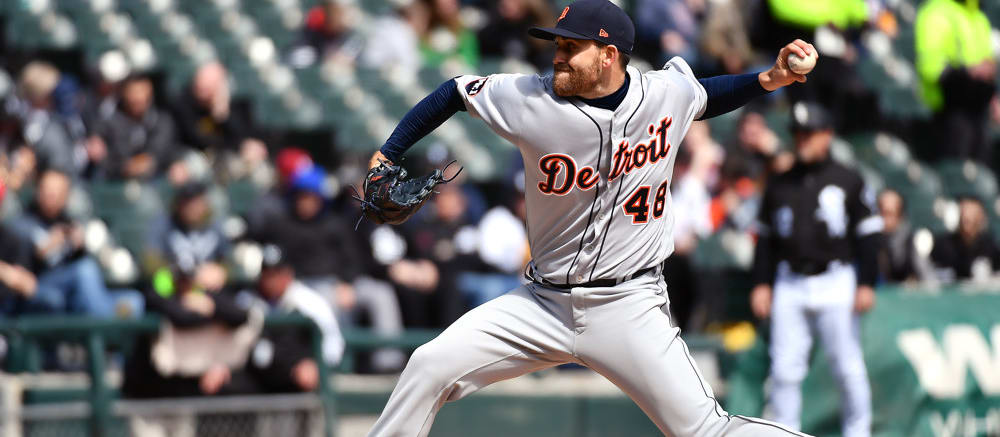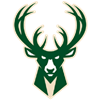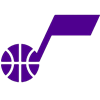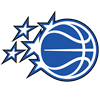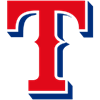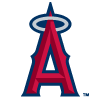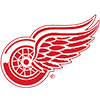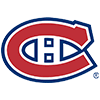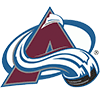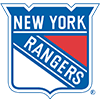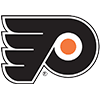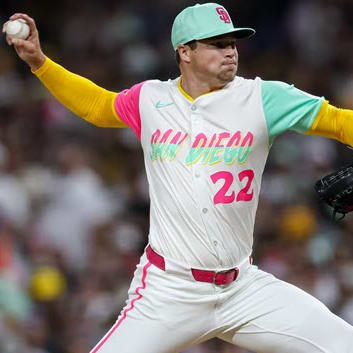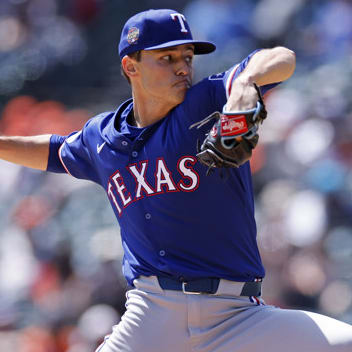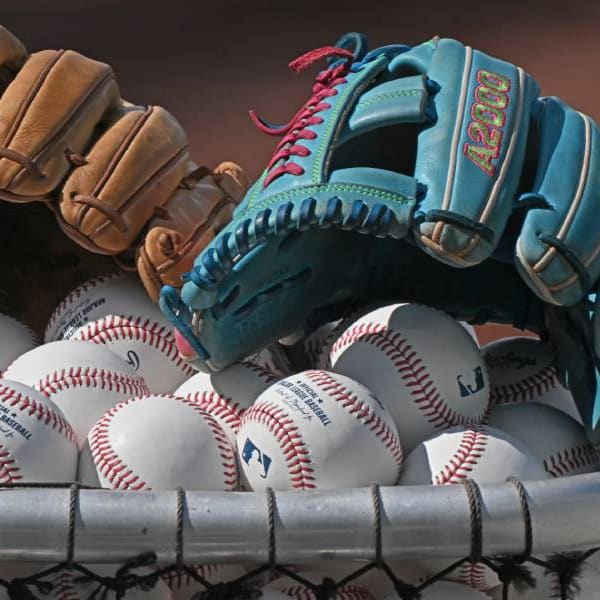With the season having reached the quarter pole, overall trends and player performances are taking shape. Homers remain way, way up, while strikeouts continue to rise. More pertinent to keepers and dynasty leagues, the flood of top prospects getting called up continued this week with Brendan Rodgers and Austin Riley, the latest names in a parade that stretches back to Opening Day assignments for the likes of Eloy Jimenez and Chris Paddack.
Farm systems aren't the only way to acquire talent that can form the core of future championship rosters, though. Plenty of less heralded players who came cheap this spring in drafts and auctions have exploded out of the gate in 2019, and determining which of them should be traded before they lose value, and which could be a key piece of your foundation moving forward, is a key skill. Whit Merrifield is the best recent example of how critical these decisions can be. Keeper-league GMs who picked him up for a song at the 2017 auction table either held onto him and have reaped the benefits ever since, or "sold high" that summer expecting him to fade and have likely regretted it ever since.
Here's a list of some of the biggest surprises through mid-May – five hitters and four pitchers – and a look at whether they're likely to keep it up and are worth protecting and building around, or whether you'd be better off cashing in now.
Josh Bell, Pirates: During the
With the season having reached the quarter pole, overall trends and player performances are taking shape. Homers remain way, way up, while strikeouts continue to rise. More pertinent to keepers and dynasty leagues, the flood of top prospects getting called up continued this week with Brendan Rodgers and Austin Riley, the latest names in a parade that stretches back to Opening Day assignments for the likes of Eloy Jimenez and Chris Paddack.
Farm systems aren't the only way to acquire talent that can form the core of future championship rosters, though. Plenty of less heralded players who came cheap this spring in drafts and auctions have exploded out of the gate in 2019, and determining which of them should be traded before they lose value, and which could be a key piece of your foundation moving forward, is a key skill. Whit Merrifield is the best recent example of how critical these decisions can be. Keeper-league GMs who picked him up for a song at the 2017 auction table either held onto him and have reaped the benefits ever since, or "sold high" that summer expecting him to fade and have likely regretted it ever since.
Here's a list of some of the biggest surprises through mid-May – five hitters and four pitchers – and a look at whether they're likely to keep it up and are worth protecting and building around, or whether you'd be better off cashing in now.
Josh Bell, Pirates: During the 2017 rabbit-ball season, a 24-year-old Bell surprised with 26 homers in his first full MLB campaign. Last year, his power numbers tumbled, but through the first six-plus weeks of this season the home runs have returned with a vengeance. He's already gone yard as many times in 40 games (12) as he did in 148 contests last season, posting an MVP-caliber .333/.404/.693 slash line along the way. While on the surface his .373 BABIP screams regression, at least when it comes to batting average, a look at his Statcast numbers reveals some extremely encouraging improvements in his approach:

If the screenshot is a little too small to make out the exact numbers, suffice it to say that red equals very, very good. His name is also all over the leaderboards on our new Batted Ball stats page. For instance, Bell sits fourth among players with at least 100 plate appearances in the rate of contact leaving his bat at 95 mph or better at 56.9 percent. That's better than Christian Yelich or Cody Bellinger. To sum it up, Bell's hitting the ball harder than ever, with more loft than ever, and he's just entering what's normally considered his prime at 26 years old. That's a profile of someone who would be thriving even if the ball wasn't supercharged. RECOMMENDATION: KEEP
Matthew Boyd, Tigers: The 28-year-old southpaw exploded out of the gate with double-digit strikeouts in his first two starts, and while he's cooled off somewhat since then, Boyd still boasts a 3.15 ERA, 0.99 WHIP and eye-popping 65:13 K:BB through nine starts and 54.1 innings. He's emerged as the ace of a rebuilding Detroit staff, and while Casey Mize and Matt Manning could soon be challenging him for that title, he seems set to provide an experienced hand alongside the two young guns. Boyd isn't throwing any harder than he has in the past – his 90.9 mph average fastball is right in line with last year – but the key to his early success has been sharper breaking pitches. Both his slider and curve have gotten more movement than ever before, leading to a career-high 13.2 percent swinging strike rate that ranks 14th in the league, just ahead of pitchers like Domingo German and Jack Flaherty. Also in that mix: Patrick Corbin, another lefty who made a similar leap in 2018 at the same age Boyd is now, and who has kept most of his gains. The comparison is close enough to give an extra bit of confidence that Boyd won't regress to irrelevance. RECOMMENDATION: KEEP
Paul DeJong, Cardinals: He isn't getting as much attention as some of the other names on this list, but DeJong has rocketed out to a .319/.410/.552 start through 43 games with seven homers and three steals. Unlike Bell, his improvement isn't so much fueled by better results when he makes contact as it is simply by more contact. The 25-year-old has a 16.0 percent strikeout rate, almost 10 points lower than last year, and his 12.2 percent walk rate is also a significant improvement. Neither of those numbers are matched by anything he's done in his career, in the majors or the minors, aside from a small 56-game sample at Low-A in 2015. Can DeJong maintain that kind of plate discipline? He's at the age where big leaps in development are possible, but he also still seems to be trying to find the right balance between patience and aggressiveness. DeJong's got a 13:8 BB:K so far through 14 games in May, but it's resulted in just a .261/.424/.413 slash line. If the offer is right, skimming the cream off the top and letting someone else handle the adjustments that could be coming the rest of the season seems like the prudent course. RECOMMENDATION: SELL
Hunter Dozier, Royals: Dozier was basically free at the draft table this spring, but he made himself a priority FAAB target quickly and now carries a .312/.402/.603 slash line through 39 games with nine homers and 24 RBI. Like DeJong, he's improved his walk and strikeout rates, although the changes aren't as dramatic, but he's also hitting the ball a little harder than he did last year – his 92.3 mph average exit velocity is a significant jump from 2018's 89.5 mph figure. Dozier's 27 years old, the classic age for improvement, and he's got a first-round pedigree as a draft pick. So why am I still hesitant to believe in this breakout? Partially it's that he was sooo bad last year, but mostly it's that the degree of his surface improvement isn't matched by anything to be found in a deeper dive. A broad range of incremental changes can certainly add up to a big boost at the macro level, but it can also be a house of cards – if he starts striking out a bit more, or stops hitting the ball quite as hard, it could all unravel. There's also the fact that he's missed a few games with back trouble to consider – it was hardly a serious injury, but it's one more nagging concern on the pile. RECOMMENDATION: SELL
Mitch Garver, Twins: I almost swapped Garver out for someone else after he suffered an ankle injury Tuesday, but a catcher with a 1.165 OPS just can't be ignored given the state of the position for fantasy purposes. He first hit the radar in 2017 with 17 homers in 88 games for Triple-A Rochester, but seven big-league home runs in 126 games since then dimmed the hype. He'd all but seized the No. 1 job for Minnesota before Shohei Ohtani slid into him Tuesday night, though, starting 10 of the first 14 games in May, and a huge spike in his Barrel rate (16.9 percent of his balls in play) has been the biggest driver of his improvement at the plate. He won't maintain a .418 ISO when he gets healthy, of course, but any catcher capable of making an offensive impact offers huge value in deeper formats given the abysmal replacement level in most leagues. Shallow-league GMs might feel a little more comfortable trying to trade Garver for top dollar, but otherwise... RECOMMENDATION: KEEP
Tyler Mahle, Reds: A preseason darling in 2018, Mahle didn't live up to the hype and stumbled to a 4.98 ERA over 23 starts. The experience apparently served him well, though. The 24-year-old has come back in 2019 and cut his walk rate in more than half, from 4.26 to 1.79, trimming a full run off his ERA in the process. The improvement seems legit – Mahle posted BB/9 rates below 2.00 at Double-A and Triple-A in 2017, and plenty of young pitchers before him have needed time to learn to trust their stuff against big-league hitters and stop nibbling. He's still looking for his first win this year, which would make him tough to move in 5x5 roto and points leagues anyway, but Mahle seems well on his way to becoming a reliable mid-rotation arm, and possibly even a bit better than that. In fact, aside from team context and the BABIP difference that comes with being more of a groundball pitcher, his numbers compare favorably to another 24-year-old right-hander who's been getting a lot more attention so far this year – the Twins' Jose Berrios:
| FIP | xFIP | K/9 | SwStr% | BB/9 | HR/9 | |
| Berrios | 3.91 | 4.17 | 8.24 | 10.4 | 1.68 | 1.37 |
| Mahle | 3.53 | 3.01 | 9.7 | 9.4 | 1.79 | 1.39 |
This is the guy Mahle was expected to be heading into last year. Hold onto him if you've got him, try to pick him up cheap due to his winless record if you don't. RECOMMENDATION: KEEP
Trey Mancini, Orioles: The 27-year-old has been one of the few bright spots for Baltimore this year, slashing .308/.355/.545 through 39 games with eight homers. Mancini has a surprising 2017 to put him on the map, but he took a big step back at the plate last year, hitting the same numbers of homers (24) but losing 67 points off his BABIP. Truth be told, last season's .285 mark fit his batted ball profile, so it wasn't just a case of bad luck. It's back up to .360 so far, but he's also made some encouraging tweaks to his swing – his 10.6 degree average launch angle is a massive improvement on his 5.4 degree mark from 2018. The added loft is good to see, but the rest of his numbers are about the same, so some regression seems inevitable. His true value lies somewhere between his current numbers and last year's, which makes him a strong sell-high candidate. RECOMMENDATION: SELL
Martin Perez, Twins: Yes, Minnesota has two guys on this list. Their spot at the top of the AL Central isn't just because Cleveland's rotation is crumbling. Perez shot up sleeper lists in the spring thanks to a big jump in his fastball velocity from his Rangers days, but the Twins' early schedule didn't allow him to get consistent usage as the fifth starter and hurt his performance. Well, he's cruising now. The 28-year-old lefty has a 2.13 ERA, 1.00 WHIP and 34:9 K:BB in 38 innings over his last six starts, and his 94.5 mph average fastball velocity on the year is nearly two ticks better than last year's mark. He's also replaced his ineffective slider with a cutter, and the overall result is an 11.4 percent swinging strike rate – not bad for a guy who'd been stuck in the sevens since 2014. All that said, his current level of performance is going to be hard to maintain given his profile, and an ERA in the mid-threes is a more reasonable expectation for the rest of the year. The Twins' have a history of developing power lefties into aces seemingly out of thin air – Francisco Liriano, and Johan Santana before him – but asking Perez to be the next ace in that lineage is probably asking too much of him. RECOMMENDATION: SELL
Caleb Smith, Marlins: The big change for Smith in 2019 has just been that he's healthy. He put up good numbers in obscurity for Miami last year before hurting his shoulder, and he's delivering elite numbers in obscurity for the team this year: 2.25 ERA, 0.92 WHIP, 64:14 K:BB through 48 innings supported by a 16.5 percent swinging strike rate that ranks second in the majors behind Blake Snell. Smith's fastball isn't overpowering at 92.4 mph but it has great movement and life thanks to an elite spin rate, and he's become something of a tunneling poster child – his fastball, slider and changeup all head towards the plate along the same relative plane, before winding up in radically different parts of the strike zone. New Marlins pitching coach Mel Stottlemyre Jr. likely deserves a lot of credit for maximizing of potential of Smith's stuff, but the pitcher still has to execute the game plan, and he's doing it to perfection. The big damper on suggesting he should be a hold is, well, that Marlins part. The team is awful, and isn't going to dig out of its talent hole any time soon, which puts a cap on his fantasy value in any format where wins matter. Given how many years of team control he's still laboring under, he's an unlikely candidate to be dealt to a contender too. Any slip in his command could have an oversized impact on his ratios too, given how much his value has been driven by tunneling-derived deception. Somewhat reluctantly (for real, and not just for show as a negotiating tactic), I'd dangle him in trade talks. RECOMMENDATION: SELL


